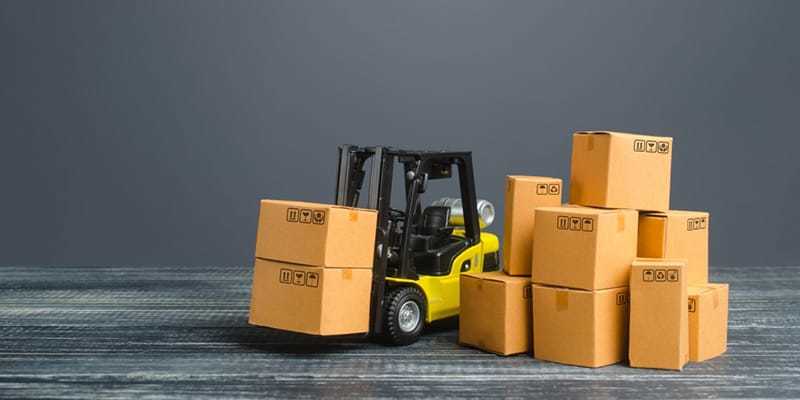Materials Management

Materials Management: this article explains Materials Management in a practical way. After reading, you will understand the basics of this powerful business control tool for planning, products, and location among other activities in the organization.
What is Materials Management?
Materials Management is a method for planning, organizing and controlling the activities that are related to the flow of materials in a company. This can lead to the control of the location, movement and time of those materials from their introduction, production, manufacturing process and final delivery.
Materials management makes sure the materials available are aligned with the customer demands, thus giving a schedule of costs and resources that the company has or needs. Materials management controls the flow of materials with demand, prices, quality and delivery schedules.
The supply chain is linked to materials management as this method is used to plan and supply the organization. Inventory goes hand in hand with this in order to keep track of raw materials and specific products. This helps minimize costs to the organization and ensures maximum return on working capital.
It should be noted that materials are classified by direct materials or indirect materials. Direct materials are those that process and give a finished product, indirect materials are those that do not generate a final product.
Direct materials
Direct materials are those materials or raw materials in which value and importance are identified in order to make the product that is needed and they also represent the cost and benefit of the process. These direct materials are essential for the quality of the product because without them the product could lose value in the market. They are vital in the inventory and it is not possible to get out of them.
Indirect materials
These are those materials that are part of the production of the product but do not make a difference to the final product. These cannot be calculated or measured, so their presence is not of high relevance in the delivery of the final result.
What a Materials Manager does
They fulfil the responsibility of sustaining the supply of materials so as not to stop production. Ensures that inventories at each storage location in the supply chain are up to date. Improves operational efficiency and minimizes material management costs to satisfy customers. It also gets involved in purchasing decisions that are necessary for production.
Other material management roles:
- Materials Manager
- Inventory Control Manager
- Inventory Analyst
- Materials Planner
Importance of Materials Management
Materials Management is vital for the process that is received from raw materials, machinery, production processes, maintenance, among others, because with this management you can order and classify the inventories in the most accurate way.
With the Management of Materials, one is responsible for the planning, movement, storage and control of materials to enhance and provide excellent customer service with a predetermined cost that is minimal.
Objectives of Materials Management
One of the objectives is to provide an interrupted chain of components for production in time for customers. The materials department takes care of the supplies by ensuring the on-time delivery of these.
Materials Management also takes care of the procurement of materials by connecting with suppliers. In some organizations they have a separate department that takes care of this called the purchasing department.
The main objective of this method is the provision and monitoring of appropriate processes of the materials at the lowest cost.
1. Selection of the material
Correct selection of the required material, evaluation of this in sales with the sales department.
2 Low cost operation
Low operating costs and maintain profits without neglecting the quality offered to the customer. Receive and control the material in a safe way and the good condition it must have. Identify the stock and take the production process to get the final product.
The result of the objectives of Materials Management can be the following:
- Constant supply of raw materials to continue production
- Economic purchase value can lead to increased productivity
- Minimize storage and stock control
- Minimize the cost of production to increase profits
- Buy better quality items at the most competitive price
Fundamental Objectives of Materials Management
These objectives are called the 5 R’s of Materials Management, they are the acquisition of materials and services.
- The right material
- At the right time
- In the right amount
- Of the quality that is
- At the right price
- From the right sources
Planning and control
Planning and control of Materials Management is important in order to achieve the desired results. The planning and control is done with the areas that need to find the processes of the operations.
This means that it is necessary to have the necessary parts, budget the materials, inventories, schedule the orders and monitor their process in relation to production and sales because the costs will be of investment for the delivery of the final product.
Because of the economic control and the investment in the raw materials, it is necessary to have the inventories of the purchase and management of the materials that are needed for the processes of creating of the final product.
An essential part of the materials management
It is the collection of the materials that are needed to complete production, and the follow-ups of these. With this in order you can keep track of the performance that the company is having and also its finances.
With well managed inventories, the cost decision making can be much easier when it comes to purchases because you can see what is needed for the production and how much could be invested, trying to maintain a good cost with the balance that is needed.
It also helps to know the existence of what you have stored in the warehouse and the record of the process that has had what has gone into production from arrival to delivery.
Inventory control
It is vital that you identify three factors for the control of your company’s inventories:
1. Maximum stock
This is the maximum amount of materials you wish to keep in storage or in the warehouse. Taking into account certain factors such as: the product has a very good acceptance by the customer, the cost of storage and transport, the time of the assortment by the supplier among others.
2. Minimum security stock
This is the minimum amount of materials or products you want to keep in the warehouse or store. Taking into account: the supplier’s delivery time, cost of the orders, prices etc.
3. Re-order point
This is the level of stock of the orders to be able to supply warehouse where the time with the suppliers is essential not to have problems of supply.
The benefits of inventory control are helpful to the operational areas that are in the organization giving priority to investment and cost of materials that are necessary for the productivity of the company, giving a follow-up flow to give positive results in the end of production and delivery to the customer.
Functions of Materials Management
Materials management is concerned with the costs of materials, supply and use. The following areas are involved such as production control, shipping, receiving and stores which we will explain below.
Production and control of materials
The preparation of schedules is very important to carry out in order to hit the results. The requirements of parts or materials are determined according to the production schedules.
This is prepared with orders that are requested by customers in advance. This is how production can be carried out without any problems.
Purchasing
This is the purchase of the materials needed in the entire production process. The objective of this department is to maintain the flow of materials and services needed to operate in the company. To keep investments and losses in inventory to a minimum.
Choose the sources of supply, finalize the terms of purchase and their follow-up, maintain the relationships with the suppliers, approve payments for the suppliers, evaluate and qualify the development of the suppliers. This department fulfils the function of buying quality products at reasonable prices.
Stores
When the material is delivered, physical control, conservation and maintenance of records, proper location and storage is done in the stores.
Transport
It is important to be able to move the materials from the point of purchase to the company or to the customers or to the place where they are going to be stored. Ideally, you should hire cheap and fast transportation according to how often you need to move production materials around.
Material handling
It is the follow-up of the material process, to know that everything has the flow that is needed in the production of the products.
Receiving
The reception is responsible for unloading the materials, counting the units and sending them to the stores.
Conclusion
Companies tend to use Materials Management to process productivity and follow up of these processes through inventories, thus having a logistic and even economic control of everything that is invested in order to have a step by step view of what has been done and what will be done in the future.
It also makes the Management of Materials the main factor to give a final product to the client, since being able to manage the quality, the purchase, the production of the product or service that is wanted to offer in the final straight of delivery, the Management makes that everything passes through the necessary filters to obtain the best results of delivery.
The Management of Materials began to be implemented in the industrial companies by the productive system of machinery, nevertheless nowadays still it is used by modern companies that have plans of work very different from the companies of the industrial age but that still guide themselves with the management of materials for the productivity of their processes, the fulfilment of deliveries and the economic pursuit of the raw material or the things that are necessary so that the processes do not stop and can follow the suitable flow for the final delivery.
It’s your turn
What do you think? Is it necessary to have Materials Management in a non-industrial company? Do you have Materials Management in your company and how have you done with this method? Are inventories essential for the financial control of the organization? Do you have anything else to add?
Share your experience and knowledge in the comments box below.
More information
- Arnold, J. T., Chapman, S. N., Clive, L. M., & Gatewood, A. K. (2001). Introduction to materials management.
- Lee, L., & Dobler, D. W. (1977). Purchasing and materials management: Text and cases. New York, NY: McGraw-Hill.
- Brown, R. G., Brown, V. C. M., Basler, P., & Gene, S. (1977). Materials Management. New York.
- Kini, D. U. (1999). Materials management: The key to successful project management. Journal of management in engineering, 15(1), 30-34.
How to cite this article:
Ospina Avendano, D. (2020). Materials Management. Retrieved [insert date] from Toolshero: https://www.toolshero.com/management/materials-management/
Published on: 06/25/2020 | Last update: 01/31/2022
Add a link to this page on your website:
<a href=”https://www.toolshero.com/management/materials-management/”>toolshero: Materials Management</a>












